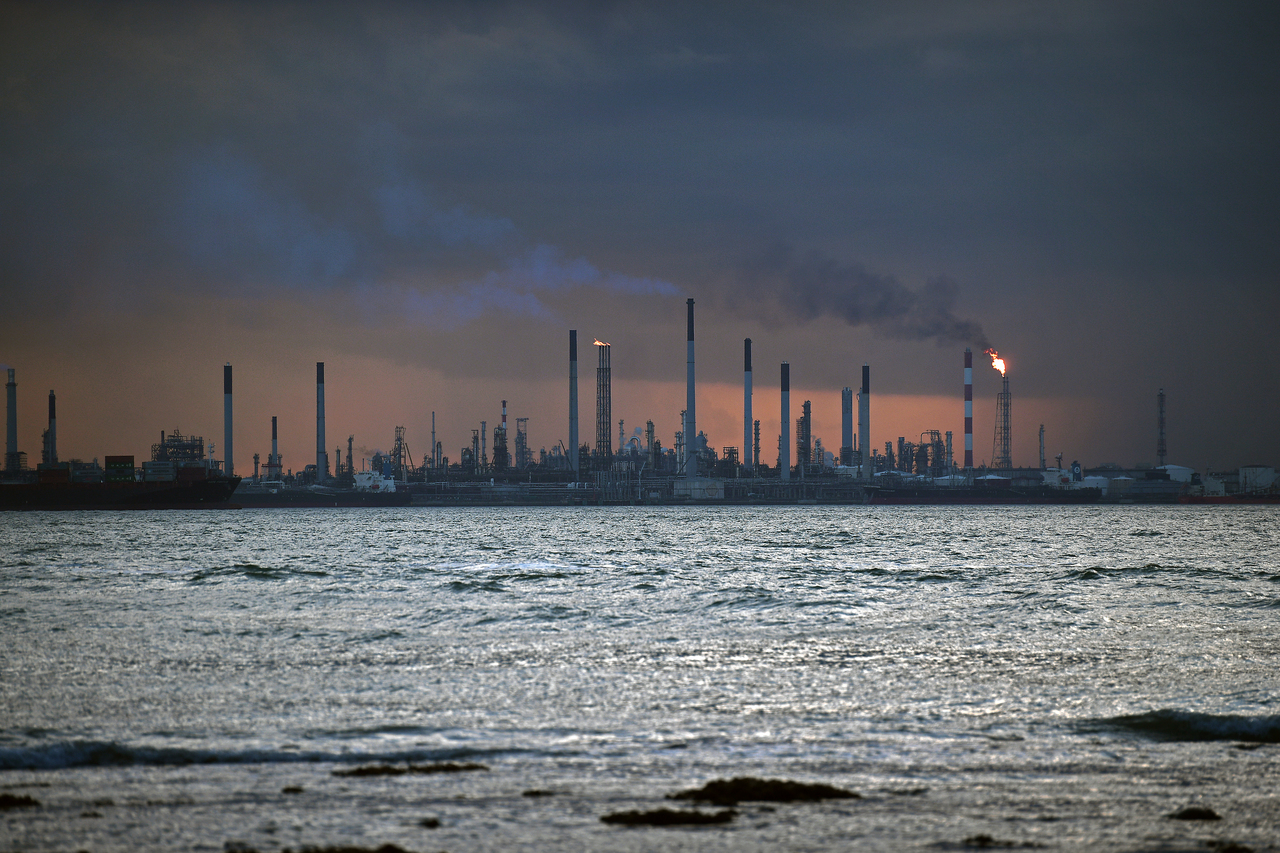S'pore must take practical approach to tackling climate change: Masagos
Sign up now: Get ST's newsletters delivered to your inbox

Singapore is investing in new technology to help it meet its climate goals.
PHOTO: ST FILE
SINGAPORE - Tackling climate change requires a practical approach, and Singapore must recognise that part of the petrochemical sector will remain even as the country continues to push the boundaries on cutting emissions, said Minister of the Environment and Water Resources Masagos Zulkifli.
Pointing to how fossil fuels are still required for transportation and in the manufacture of items such as mobile phones, he said many aspects of life today still need input from the sector.
"So for everyone who complains so much about the petrochemical industry, don't use your handphone, don't go around transported with all these fuels that you complain about," said Mr Masagos, during an interview with The Straits Times and Chinese daily Lianhe Zaobao broadcast on Friday (June 19).
He was commenting on the concerns raised by climate activists in Singapore about the presence of representatives from carbon-intensive industries on a task force that aims to chart the way forward for the country in the post-pandemic era.
The new Emerging Stronger Task Force, first announced by Deputy Prime Minister Heng Swee Keat in April, aims to drive industry transformation strategies in an economic landscape impacted massively by Covid-19, both globally and in Singapore.
The 17-member task force is led by Minister for Social and Family Development and Second Minister for National Development Desmond Lee, as well as Mr Tan Chong Meng, group chief executive of port operator PSA.
Representatives from the technology, banking, property, agri-business, aviation and petrochemical sectors are included in the task force.
Said Mr Masagos: "So my point is, we have to be pragmatic, but we also have to be concerned and keep pushing the boundary so that we use less of (fossil fuels) and then find better alternatives for the long term."
To this end, Singapore is investing in new technology to help it meet its climate goals.
This includes doing research into green hydrogen - a low-carbon energy source - as well as carbon capture, utilisation and storage technologies, which can help to suck carbon out of the air.
Said Mr Masagos: "I think technology is very promising. There are technologies which have been proven in concept but not in scale. But... in the future, you would be able to solve, hopefully, the problems that you are facing today."
Moreover, there are already encouraging signs, he said, citing the Budget debates earlier this year, during which various ministries outlined their plans going forward.
"I was really happy that almost all ministries, when they presented their vision, their view, of what they're going to do for that year, climate change mitigation, adaptation was part of what they do," he said.
The Defence Ministry (Mindef), for instance, highlighted plans to install solar panels on buildings in its military camps, and to replace 400 administrative vehicles with cleaner options. The Transport Ministry also declared that it aims to phase out internal combustion engines by 2040.
Said Mr Masagos: "Sustainability became core to what they want to implement - even Mindef. So I was quite elated (because) in the past, only (my ministry) talked about it, but this time around, everyone was in it."
"So all these things are already there," he added.
"Whatever the new task force will implement will take reference from what we have planned, because they know that this is something that may be out of our radar for the moment (due to Covid-19) but is something we have to take very seriously, going forward."


